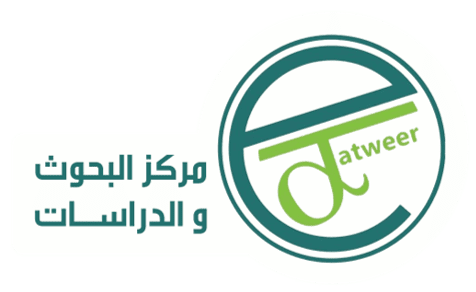What is the classification system Or Tassnif Csertificate in Saudi Arabia?
The classification system or as named in Arabic language “Tassnif” in the Kingdom of Saudi Arabia is a fundamental tool launched by the Ministry of Municipal and Rural Affairs and Housing to regulate and develop the service sector and enhance the efficiency of city service providers. The system relies on classifying establishments and their specializations within multiple fields according to precise criteria encompassing financial, technical, administrative, and executive aspects. This system is considered a key measure for determining establishments’ capabilities and ability to meet service delivery requirements with efficiency and high quality, contributing to enhanced transparency and reliability for beneficiaries.
By classifying establishments into categories and grades commensurate with their current capabilities and resources, the classification system encourages service providers to improve their performance and raise their standards by adhering to approved quality standards that ensure efficient implementation and mastery of work. This system also contributes to creating a competitive environment among service providers and encourages them to continuously develop across various fields, which positively impacts national projects and the Kingdom’s sustainable development goals.
The importance of the classification system
– Improving project quality: The classification system ensures the selection of qualified companies capable of efficiently implementing projects, which increases the quality of project implementation and reduces the likelihood of failure.
– Enhancing transparency: The system helps create a transparent business environment by providing accurate information about companies’ capabilities and potential, which contributes to reducing risks and improving trust.
– Improving service sector efficiency: By setting a classification level for each company, companies are encouraged to develop their capabilities to meet higher standards, thus increasing the overall efficiency of the service sector.
– Encouraging competitiveness: The system encourages companies to compete and continuously improve their performance, opening up new opportunities for startups to enter the market and compete with established companies.
– Supporting sustainability: The system promotes the implementation of sustainability and quality standards, contributing to achieving the goals of Saudi Vision 2030 by improving project quality and achieving sustainable development.
– Saving time and resources: By adopting digital classification, the company classification process is facilitated and accelerated, saving time and effort for both companies and stakeholders.
– Integration between agencies: The system works to organize and unify standards between different government agencies, which contributes to improving coordination and reducing overlap in projects.
Classification System Criteria
For a company to be listed and classified within the Kingdom’s classification system, it must meet a set of financial, technical, and legal conditions and criteria. Based on these criteria, the institution receives a classification degree commensurate with its current status. The classification system is based on three sets of criteria:
Legal requirements
Credit assessment (financial criteria)
Technical criteria
Classification degrees
Service providers in the Kingdom are classified according to the new classification system into seven different grades, starting with the Excellent grade, which is the highest grade in the classification system, and ending with the Sixth Grade, which is considered the lowest grade in the system. This is down from the previous five grades. The Excellent grade was added to suit larger companies, while the Sixth Grade was added to the new system to provide greater flexibility and allow unclassified contractors and small companies to obtain a classification under the new system. The classification grade is awarded according to a set of established criteria that determine the appropriate grade for the classified company, such as its size, performance, and financial solvency. These grades are as follows:
Excellent Grade: Awarded to large companies with strong financial capabilities, extensive experience, and large-scale projects. These companies are qualified to implement large and complex projects efficiently and with quality, demonstrating transparency and continuity of work.
First Grade: Includes large companies with strong financial and technical resources and the ability to implement medium- to large-scale projects, but may be less than the Excellent Grade in terms of size and capabilities.
Second Grade: Includes companies with good resources and average experience, capable of implementing medium-sized projects, but may not have the capabilities to implement large projects.
Third degree: Includes SMEs with sufficient resources and expertise to implement SME projects, and is considered suitable for projects with limited requirements.
Fourth degree: Awarded to companies with limited capabilities and qualified to implement very small projects or limited-scale businesses.
Fifth degree: This tier is awarded to companies with weak performance or that are arguably unsuitable for the market in terms of quality or achievement of objectives.
Sixth grade: This is the lowest tier in the classification and includes very small companies with limited capabilities. This tier is often awarded to startups that are still in the growth phase, as these companies do not meet the classification requirements and are not qualified to provide acceptable services.
How do I obtain the best classification tier that reflects the company’s capabilities?
The best possible rating can be achieved through proper planning to obtain a classification certificate. This involves properly understanding all administrative and legal requirements and preparing the company’s file accordingly. In addition, follow these guidelines:
- Read the government’s legal and administrative requirements to understand the requirements for obtaining a classification certificate.
- Prepare a classification file that includes all necessary licenses.
- Conduct a credit evaluation of the facility.
- Analyze the facility’s weaknesses and work to close any gaps before applying for the classification certificate.
Or, you can seek the assistance of an accredited consulting firm to properly complete all necessary procedures.
Why do we recommend that companies use Tatweer Alpha Company to obtain a classification certificate?
Tatweer Alpha Company is a leading company in issuing classification certificates for all economic establishments in the Kingdom of Saudi Arabia, across various specialties.
Tatweer Alpha Company is distinguished by its preliminary study of the companies to be classified, to analyze their strengths and weaknesses, and to provide a comprehensive analysis that includes all the necessary steps. This helps keep decision-makers fully informed of all the procedures that must be followed to improve the establishment’s activity and financial figures, thus achieving the best classification score that reflects the establishment’s correct performance.
High transparency in performance, combined with field experience and extensive relationships, has made Tatweer Alpha Company a partner of major companies from various sectors in the Kingdom of Saudi Arabia.
You can request a free consultation by contacting the company. Request a free consultation.


